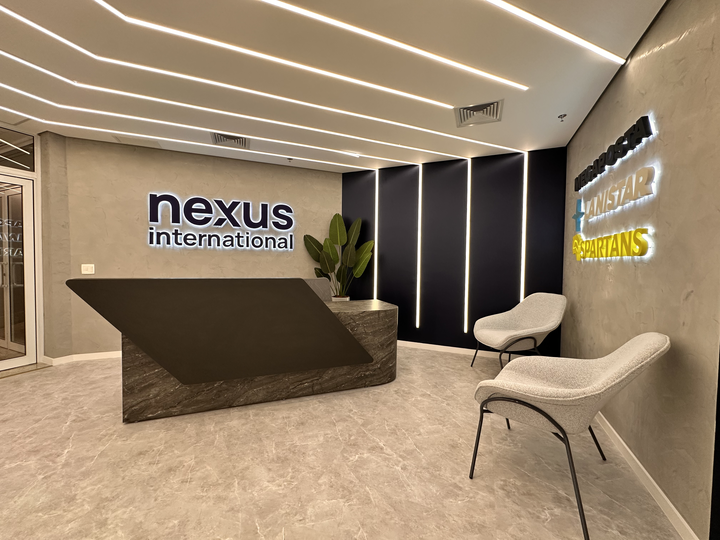
$546M H1 Revenue Puts Nexus International Among World’s Leading Gaming Operators
Nexus International has posted $546 million in revenue for the first half of 2025, more than doubling its performance from the same period last year. The 110% year-on-year increase places the privately held operator within the world’s top 100 gaming companies by revenue, a position achieved without external investment or the oversight of a formal board structure.
The H1 total already surpasses Nexus’s full-year 2024 revenue of $400 million. Based on current trading, the company now forecasts a year-end run rate of between $1.1 billion and $1.2 billion, maintaining its previously stated target of $1.54 billion for 2025.
Revenue gains were broad-based across Nexus’s three flagship platforms: Spartans.com, Lanistar, and Megaposta. Spartans.com, the group’s crypto-enabled gaming brand, has expanded to offer over 5,900 games from 43 providers, driving adoption in multi-currency and high-volume markets.
Lanistar, having fully transitioned from a fintech product into a regulated gaming operator, reported increased market share in both Europe and Latin America. Meanwhile, Megaposta benefited from Brazil’s newly regulated iGaming framework, delivering high user retention and consistent transaction growth.
The company’s performance reflects a deliberate focus on scaling products quickly in high-potential jurisdictions, with rapid decision-making cited as a key competitive advantage.
Nexus operates without a traditional corporate board. Instead, founder and CEO Gurhan Kiziloz retains direct control over strategic decisions, enabling faster market entries, product launches, and capital allocations. Kiziloz notes that the model demands discipline but has been central to the company’s ability to capture opportunities ahead of slower-moving competitors.
“Without the layers of governance that can slow decision-making, we can move at the speed the market demands,” Kiziloz said. “Our structure lets us act on market intelligence quickly, while keeping execution highly focused.”
While this model accelerates decision-making, it also consolidates operational responsibility within a smaller leadership group. Nexus has invested in expanding senior management capabilities to maintain execution quality as its market footprint grows.
Capital deployment in H1 2025 was heavily weighted toward high-growth regulated markets, with Brazil emerging as the company’s single largest revenue contributor. In response, Nexus has established a regional headquarters in São Paulo to support operations across Latin America. This move positions the company closer to key regulators, partners, and customers in one of the fastest-growing iGaming markets globally, projected to reach $3–4 billion by 2026.
The company’s presence now spans more than 40 active markets, with regulatory licences in multiple jurisdictions and a pipeline of new market entries under review for late 2025 and early 2026.
With current revenue levels, Nexus’s scale is comparable to mid-tier publicly traded operators such as Betsson AB and Rank Group, despite operating privately and without external funding. The company’s structure has allowed it to move with speed in product diversification, payment integration, and regional expansion.
Spartans.com has been a central driver of this growth, supported by new product launches, multi-currency betting, and enhanced affiliate programmes. Lanistar has targeted emerging gaming verticals in Europe, while Megaposta has anchored Nexus’s strategy in Latin America, benefiting from early licensing advantages.
For the remainder of the year, Nexus plans to continue scaling its core platforms while entering select regulated markets with strong growth potential. Investments in platform technology, customer acquisition, and localisation are expected to remain the primary use of capital.
The company has not announced any plans to seek a public listing or external capital. Management maintains that its current private ownership structure offers strategic flexibility and the ability to execute without external constraints.
“Our focus is on sustainable, profitable growth in regulated environments,” Kiziloz said. “That means maintaining the ability to adapt quickly, invest decisively, and keep control of our strategic direction.”
With momentum from the first half of the year, Nexus remains on track to achieve its 2025 targets and consolidate its position among the most prominent privately held operators in the global gaming sector.















